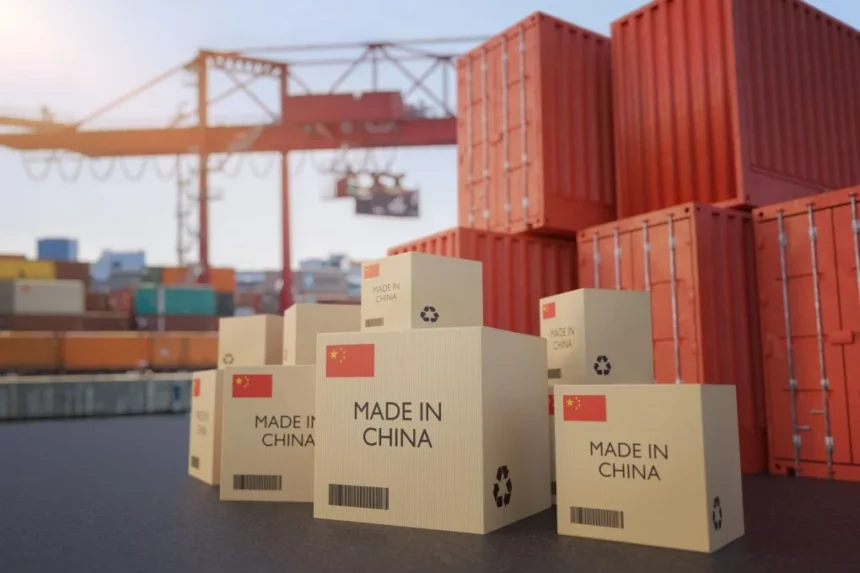BANGKOK – Southeast Asian countries are facing a sharp increase in exports from China after the U.S. raised tariffs, shifting global trade patterns. Thailand, Vietnam, and Indonesia are seeing higher volumes of Chinese goods as exporters avoid steep U.S. duties by targeting nearby markets.
Since early 2023, falling export prices from China have added pressure, putting local businesses at risk and hitting some industries especially hard. Thailand has taken the brunt, with its local manufacturers struggling to keep up.
Johanna Chua, Citigroup’s head of emerging-markets economic research, said Chinese exports to Southeast Asia have reached record monthly levels. This follows a steep drop in China’s direct shipments to the U.S., which fell by more than a third in May, the largest decrease since 2020.
With U.S. tariffs on some Chinese goods at 145%, exporters are moving products through Southeast Asia—a trend called trade diversion. Often, this means goods are routed through Vietnam and Thailand to hide their Chinese origin and dodge U.S. tariffs.
Citigroup pointed to a clear link between rising Chinese imports in Southeast Asia and the region’s exports to the U.S., showing how trade diversion is shaping flows.
Thailand’s industries have suffered from the surge in cheaper Chinese products. Over 2,000 Thai factories have closed this year, mostly due to low-priced Chinese steel and other goods. Thai producers, already hurt by slow demand at home, now face tough competition from imported products that cost much less.
Textiles from China
Chinese textile prices, which have dropped since early 2023, have undercut Thai garment makers, causing thousands to lose their jobs. The Thai government is looking into how imported goods are causing lower prices and has tightened rules on certificates of origin to stop goods from being rerouted, but these steps have not slowed the import growth.
Finance Minister Pichai Chunhavajira announced that the U.S. has agreed to start tariff talks with Thailand, bringing hope for relief, though any results are still unclear.
Vietnam and Indonesia are in a similar spot. Indonesia has seen a surge in Chinese textile imports, pushing its clothing industry to the edge and causing job losses. Local factories find it hard to compete with cheaper Chinese fabrics and finished clothes.
Vietnam, while gaining from trade diversion as its exports to the U.S. jump, is paying a price at home. Local industries are being squeezed, and the government has put anti-dumping tariffs on Chinese goods to defend its producers. Both countries say they are stepping up efforts to block illegal transshipment, but the sheer amount of imports makes this tough.
Tightening of Trade Rules
The impact across the region is significant. Chinese export prices, especially for textiles, have dropped since early 2023, adding to deflation worries in Southeast Asia. This makes it even harder for local firms to stay profitable, as they can’t compete with the low prices of Chinese goods, which are often subsidized.
Citigroup warns that China may also be moving some production to Southeast Asia to manage U.S. tariff risks, while still keeping control over the supply chain for key materials. This keeps China central to regional trade, even as U.S. sales fall.
Governments across Southeast Asia are scrambling to respond. Thailand and Vietnam are tightening trade rules, and Indonesia has slapped anti-dumping duties on Chinese steel and textiles. Still, these moves could strain ties with China, the region’s top trading partner.
In May, China’s exports were up 4.8% year-on-year, with shipments to Southeast Asia rising nearly 15%. This shows how China is shifting its trade focus to the region.
As the trade dispute between the U.S. and China drags on, Southeast Asia is caught in the middle. While the flood of Chinese imports brings cheaper goods for consumers, it threatens the future of local industries.
Thailand, Vietnam, and Indonesia must find a way to protect their markets while keeping trade with China open, all in the face of growing global trade tensions.
Sources: Citigroup














